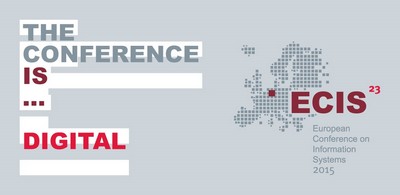DOI
10.18151/7217455
Abstract
We introduce the sharing economy as an IT-enabled phenomenon that is distinct from existing socioeconomic modes of interaction. While research on the consumer perspective is growing, studies examining the complementary organizational perspective seem to be lagging behind. Our study therefore aims to investigate the firm stance by analyzing how successful sharing economy organizations manage their business models. We choose the business model as a unit of analysis, as it allows incorporating IT as an integral component of organizational activities into our research. Our case study uses multiple data sources and elicitation methods and provides detailed rigorously collected information that is not typical for case studies. Our findings suggest that consumer needs in the sharing economy lead to conflicting requirements for business model configuration: innovativeness and acceptability. To carefully balance the two, firms need to constantly integrate novel technologies into their business model while not deviating too heavily from already existing models. We term our emergent theory IT-user-aligned business model innovation (ITUA). It offers the unique contribution of conceptualizing the process of business model innovation as a dynamic capability. Our study further highlights the fundamental role of IT in enabling a potential reconciliation of economic and societal value creation.
Recommended Citation
Sach, Amelie, "IT-user-aligned Business Model Innovation (ITUA) in the Sharing Economy: A Dynamic Capabilities Perspective" (2015). ECIS 2015 Completed Research Papers. Paper 153.
ISBN 978-3-00-050284-2
https://aisel.aisnet.org/ecis2015_cr/153


